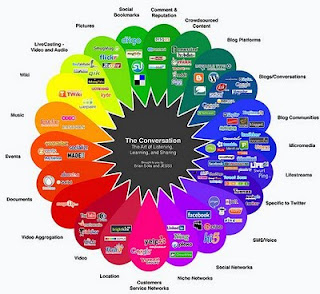i am sick but do some evaluate form...sleep and look around...

"We felt people outside global-change research were not clear about the scale of changes scientists are witnessing. The index is a response to these concerns."
-- Sybil Seitzinger, executive director of the International Geosphere-Biosphere Programme (IGBP), a research network of 10,000 scientists, on the group’s move to take four key indicators to develop the world's first climate change index as a useful tool for policy-makers. It was launched at the UN climate change talks in Copenhagen, where talks remain deadlocked, with developed and developing nations at odds over who should cut emissions, how deep the cuts should be, and how much aid should go to poor countries. The four indicators are sea level rise, global temperature, Arctic sea ice melt and the level of carbon dioxide in the atmosphere, IRIN reports. The decision to develop the index was prompted by asking: "What if the complexity of the Earth's climate were distilled down to one number, in the same way that the Dow Jones Index [which tracks targeted stock market activity] condenses volumes of data into a single figure? What then would be the general trend?" The index, to be updated annually, uses data starting from 1980 to provide an annual snapshot of how the planet's systems – ice, oceans, land surface and atmosphere - have been reacting to a changing climate. According to Seitzinger, the index rises steadily from 1980, showing that the planet is warming. The climate change index was the first step, Seitzinger told IRIN. The IGBP intends including more variables, such as precipitation. "Maybe we could do a separate index on each variable, or even regional or country-specific indices – we are exploring these options and taking feedback." |
Global Development Briefing -- Bear Marke Special Notice
|
ICGFM 2010 Survey of Global Financial Management Leaders
An unexpected silver lining of the economic downturn is that it has exposed many flaws in public financial management and even spurred improvement efforts. Citizens are becoming more intense in their scrutiny of how governments allocate, spend and report on public funds, and governments have responded. According to a new survey of global financial management leaders, conducted by Grant Thornton LLP on behalf of the International Consortium of Government Financial Management (ICGFM), governments are steadily moving along the path to public financial management reform. Reform has taken the shape of adopting international accounting standards, standardizing information systems, and improving debt and deficit management. Americas & Caribbean
|
Argentina
Argentina said it plans to establish a fund under which USD 6.57 billion from its foreign-currency reserves will be used to pay back debt to international lenders and bondholders coming due next year. President Cristina Fernandez de Kirchner reportedly said the move will not only ensure payment of the debt but is aimed at reducing the rate of interest on its debt. The country -- looking to return to the foreign-credit markets after a 2001 default -- has been working to restructure about USD 20 billion in defaulted debt. Argentine Economy Minister Amado Boudou has wooed international investors in recent months with a series of market-friendly gestures and announcements. (WSJ)
Cuba
Cuba's has arrested a U.S. government contractor employed to help Cuban dissidents. The U.S. State Department confirmed the Dec 5. arrest of the unidentified American, who The New York Times reported was handing out telecommunications equipment such as cell phones and laptops on the communist-ruled island. Havana has not commented publicly on the detention but may choose to turn it into the latest in a long list of diplomatic and espionage disputes that have roiled U.S.-Cuban relations for almost half a century. Maryland-based Development Alternatives Inc, which says it has a federal contract to support "just and democratic governance in Cuba," described the American held as a sub-contractor employed "to assist Cuban civil society organizations." (Reuters)
Ecuador
A drought in Ecuador is causing power blackouts throughout the country, slowing the economy's recovery and helping to push Rafael Correa's popularity to the lowest point of his presidency. The approval rating of the firebrand socialist fell to 42 percent in a recent Cedatos Gallup poll, half of what it was in the early days of his government in 2007. Already frowned upon by some investors for his 2008 bond default and the tough stance he has taken with international oil companies, Correa faces a growing domestic challenge posed by the power outages. Correa does not go before the electorate again until 2013 elections. Eyes are on the drought because Ecuador is known for ousting presidents during hard economic times. Correa's three immediate predecessors were forced from office by protests. (Reuters)
Honduras
Honduran police promised to thoroughly investigate the killing of a gay rights activist who joined in protests against the June coup that ousted President Manuel Zelaya. The anti-coup National Resistance Front said gunmen in a car shot Walter Trochez this past weekend as he walked in downtown Tegucigalpa. Friends rushed him to a hospital, where he died. "Trochez was an active militant in the resistance and an example of the fight against the dictatorship," the group said. The front claimed that Trochez, 27, was often harassed and threatened by police and soldiers because of his activism on behalf of homosexuals. (AP)
Mexico
President Felipe Calderon is proposing runoff elections in future presidential contests and re-election for many officials in Mexico's most dramatic political reform attempt in decades. The proposal announced Dec. 15 would still limit presidents to a single, six-year term, but it would relax Mexico's ironclad ban on re-election of other officials. It also would allow independent candidates to run for public offices and would permit citizen initiatives. "The idea is to give citizens more power, to give them the capacity to shape public life and to strengthen our democracy," Calderon said in a televised address. (AP)
|
|
| | | | |
|
|
|









